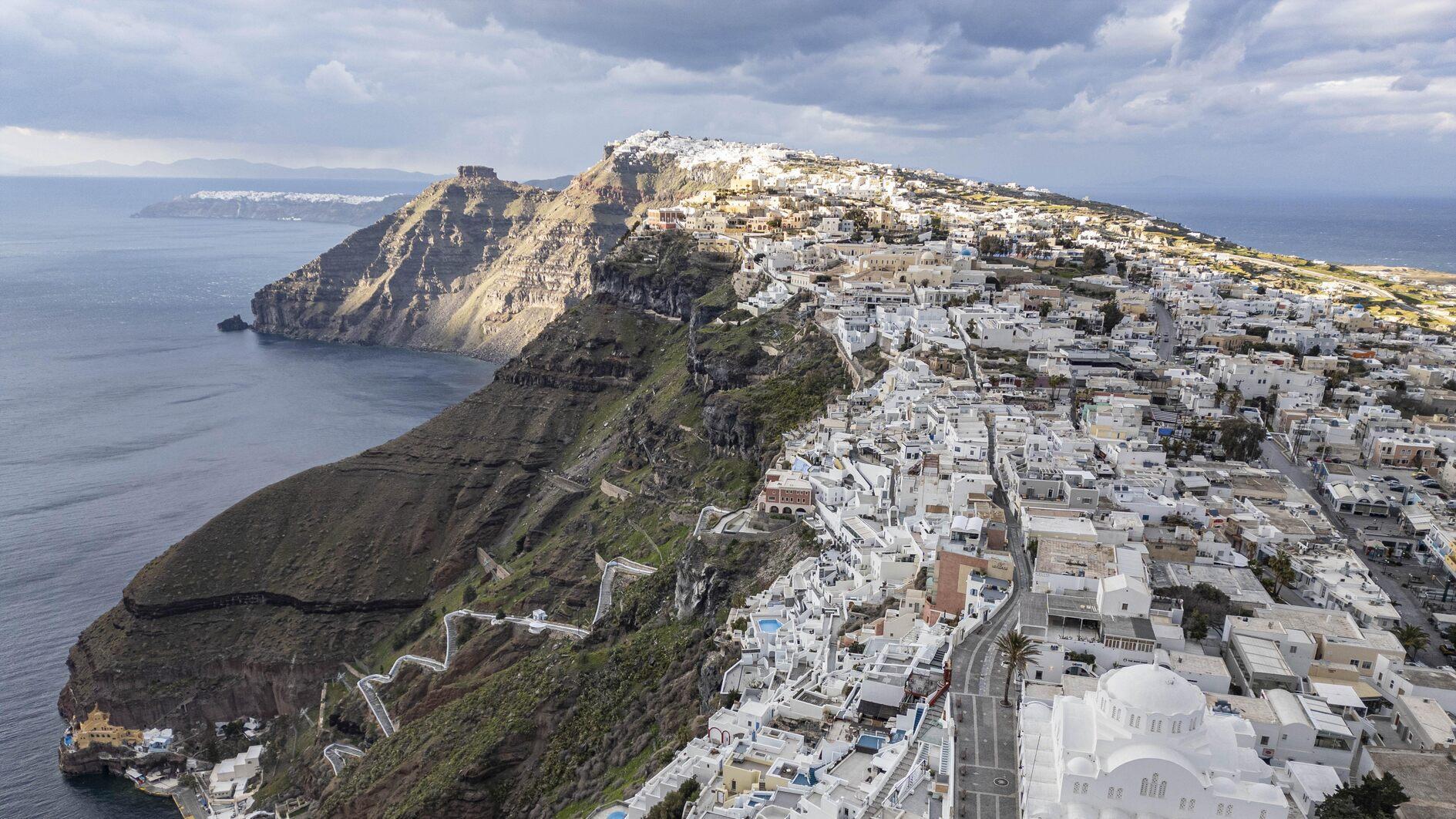
Schools on Greece’s Aegean islands of Santorini and nearby Ios, Amorgos and Anafi are set to reopen on March 4 after being closed for several weeks due to a significant earthquake swarm that affected the region from late January to mid-February.
While minor tremors are still occurring, experts expressed confidence in a meeting last week that the seismic activity is subsiding, allowing daily life to resume following the “Clean Monday holiday,” a religious fasting day in Greece.
Inspections of public buildings on the islands confirmed that they withstood the earthquakes well and are safe to reopen.
Nonetheless, heightened safety measures are being implemented and residents are urged to exercise caution when choosing travel routes and to thoroughly inspect their homes and businesses for any potential damage.
Last week Greek media reported the earthquake swarm near the island of Santorini was gradually declining a month after it began.
The undersea shocks — sometimes recorded only minutes apart — led thousands of residents and workers to flee the famed clifftop towns of Santorini as well as the nearby islands.
“Seismic activity continues to show a gradual decline, both in terms of the daily number of recorded earthquakes and maximum magnitudes,” the Interdisciplinary Committee for Risk and Crisis Management at the University of Athens said.
“The activity remains concentrated in the same focal area ... with no new micro-seismic surges observed since Feb. 15,” it said.
The committee said it recorded more than 20,000 earthquakes of magnitude 1 or higher between Jan. 26 and Feb. 22.
The multiple earthquakes, attributed to natural tectonic processes as well as magma movements below the seabed, have measured up to magnitude 5.3 but have caused only minor damage.
Santorini Mayor Nikos Zorzos said several thousand people had returned to the island since mid-February and called on government authorities to provide additional assistance in dealing with risks — including controlling rockfalls and the installation and repair of hillslope fencing.
Three of my children were crying, my wife was on edge too," the father of four, 54, told the media at a summer camp near Athens temporarily housing scores of people who were also forced to leave their homes.
Known for its spectacular volcanic caldera, a large depression that forms when a volcano erupts and collapses, Santorini is also part of a volcanic arc with two underwater volcanoes near to its coast, Nea Kameni and Kolumbo, which last erupted in 1950 and 1650 respectively.
Authorities declared a state of emergency in Santorini and Amorgos at the start of February for a month, with schools closing while a majority of Santorini residents elected to leave the island, which saw 3.4 million visitors in 2023, leading to complaints of over-tourism.
Prime Minister Kyriakos Mitsotakis recently announced a support package for local businesses and workers on the island, one of Greece's most popular tourism destinations.